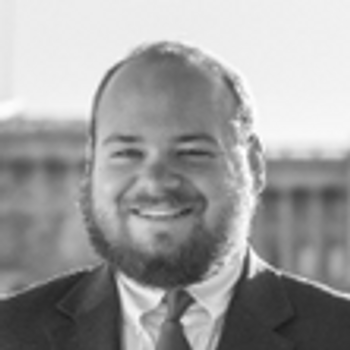Syracuse speech policies undergo First Amendment makeover
Syracuse University, a school criticized for having one of the most aggressive policies against free speech on campus, is seeking public comment on proposed revisions to these policies.
“As part of an ongoing dialogue, Chancellor Kent Syverud recently announced that Syracuse University will revise three existing University policies governing speech and expression, consistent with recommendations,” Syracuse said in a statement.
The university is allowing the public to comment on the specific policy changes by filling out a form at the bottom of each section under revision, keeping the comment function operating until November 18.
The change comes after the school has been routinely criticized by organizations such as the Foundation for Individual Rights in Education (FIRE), which gave the university a “red light” rating for its free speech policies, meaning the university has at least one policy that clearly restricts the First Amendment rights of students.
[RELATED: FIRE ranks the 10 worst schools for free speech]
In an effort to address such free speech concerns, Syracuse decided to update its policies to more clearly define harassment in a way that does not conflict with free speech, as well as to clarify the rules regarding internet communication.
Under the school’s current policies, harassment is defined to include unwanted or unwelcome conduct that “annoys” or “alarms” a person, while sexual harassment can include “verbal” and “visual” conduct of a sexual nature that is unwelcome and can create “an intimidating or hostile environment.”
To “clarify” that its policies are not meant to unduly restrict free speech on campus, the proposed revision classifies harassment as something that is “so severe or pervasive that it unreasonably interferes” with a person’s life.
“A person's subjective belief that behavior or speech is profane, intimidating, hostile, or offensive does not make that behavior or speech harassment,” the policy draft states, adding that to qualify as harassment, “the behavior or speech must be objectively unreasonable.”
Syracuse’s electronic communication policy has also come under fire for prohibiting messages that are “annoying,” “repeatedly unnecessary,” or “offensive,” as well as “[sending] messages after a request to stop” and “procedures that hinder a computer session.”
The proposed revision removes much of that language and simply forbids using school resources to “intimidate, harass, incite, threaten or otherwise do harm to others, beyond the bounds of protected free speech.”
FIRE has long been critical of the university’s speech policies, even highlighting them as its “Speech Code of the Month” in October 2013 following several instances in which the school enforced its policies in response to legitimate exercises of free speech.
[RELATED: FIRE chastises Columbia, alleging free speech hypocrisy]
“It punished a student for a remark about racism on Facebook where he was criticizing racism. It went after a student for a satirical blog about law school," FIRE Executive Director Robert Shibley noted at the time. “And now it's been named Speech Code of the month because of this policy restricting electronic communications in a way that, frankly, students are probably violating left and right."
In light of the school’s newly-proposed revisions, however, FIRE told Campus Reform that Syracuse is now moving in the right direction in terms of respecting students’ constitutional rights.
“The new Computing policy would earn FIRE’s highest, green light rating, and would replace one that currently earns FIRE’s lowest, ‘red light’ rating,” a representative from FIRE told Campus Reform. “The new Anti-Harassment policy would earn a green light rating from FIRE, though it is not yet clear whether Syracuse plans to use this new harassment definition across the board to replace the restrictive definitions of harassment found in other existing policies.”
Even under the best-case scenario, though, Syracuse would still not be eligible for a green light rating overall because it still maintains other policies that fall under FIRE’s “yellow light” classification, meaning they are not explicitly unconstitutional, but “could too easily be used to restrict protected expression.”
Some of the “yellow light” policies include a ban on the use of “fighting words” in person, video, or text; prohibitions against conduct that threatens mental health; and the existence of a bias reporting system tasked with “fostering an appreciation for diversity” by encouraging students to report incidents like name-calling, referring to something as “gay” as an insult, using the phrase “no homo,” or “displaying a sign that is color-coded pink for girls and blue for boys,” among other things.
Yet FIRE remains optimistic that Syracuse is at least gradually moving toward allowing its students greater freedoms, telling Campus Reform that, “Overall, we commend Syracuse for its progress in working to better protect its students’ freedom of expression rights, and we encourage the university to build on this progress by reforming all of its remaining speech codes.”
Follow the author of this article on Twitter: @TylerArnold18

